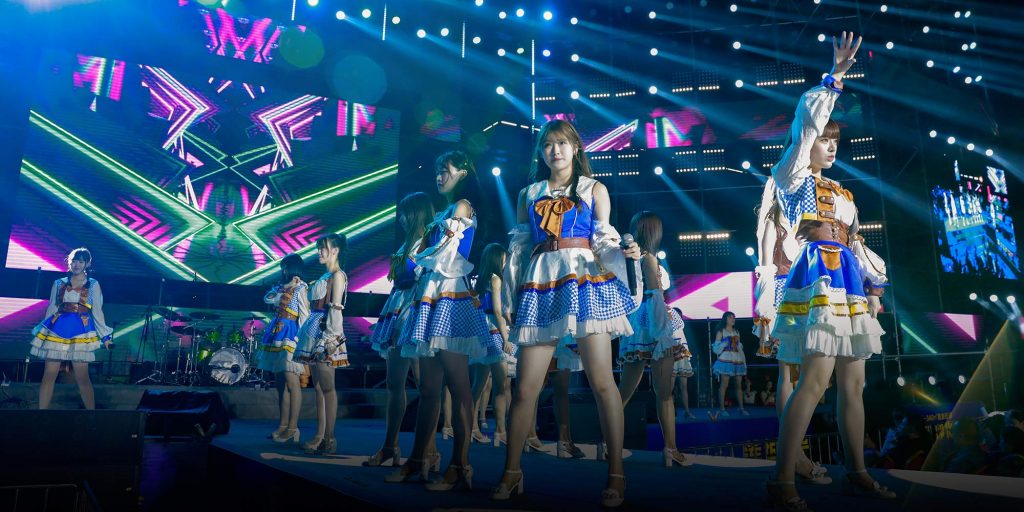China’s idol industry went from boom to bust in the blink of an eye. Now some girls are fighting their way back to the top.
CHONGQING, Southwest China — Nineteen-year-old Mao Yihan sits in a cramped corner of a dressing room, preparing for her stage performance four hours away. She rubs powders onto her porcelain skin, puts her dyed hair into pigtails, and changes out of her loose, black T-shirt and into one of her band’s signature bubble skirts — something a team of about 80 staffers helped her and her bandmates do, before being laid off.
“I dislike the boredom of living a regular life,” says Mao, applying her own mascara. “I’ve always been set on becoming an idol.”
After the makeover, she transforms into the cookie-cutter image of a Japanese idol — despite being in Chongqing, a southwestern Chinese city best known for spicy food and foggy weather. Around her, the 12 other band members rehearse self-introductions, practice dance moves, and memorize song lyrics for that night’s performance.
“If any one of you makes a mistake tonight,” jokes the band’s manager, Wang Jiayao, “you’ll be punished by not drinking anything with the hot pot after the performance.” The young women burst into laughter and chatter, cheerful despite how much is at stake in the upcoming performance. After all, it’s been just over two months since the idol band, CKG48, last stepped onto a theater stage. They’d been disbanded since January.
Compared with neighboring countries Japan and South Korea, China’s industry of “idols,” or young entertainers crafted and marketed by agencies, is still in its infancy. Japan pioneered the idol industry in the 1970s, and South Korea achieved mainstream success with its own idol bands in the mid-’90s. But China’s first major idol group, the all-female SNH48, wasn’t formed until 2012.
After two years of limited success, SNH48 went on to earn its parent company more than 100 million yuan from a single event in 2016, equivalent to $15.1 million at the time. By then, investors who had caught wind of the group’s growing profits — as well as the billions in revenue being generated by idol bands in Japan and South Korea — began pouring money into the nascent industry. 2016 alone saw more than 200 thriving idol girl groups.
But the boom was too much, too soon. As more idol bands flooded a market not yet ready for them, few could garner a strong fan base, stand out from the crowd, or simply stay together without burning through all their money.
CKG48, too, was a victim of these same dynamics, but it’s been given another chance. Continue to read the full article here.
– This article originally appeared on Sixth Tone.








